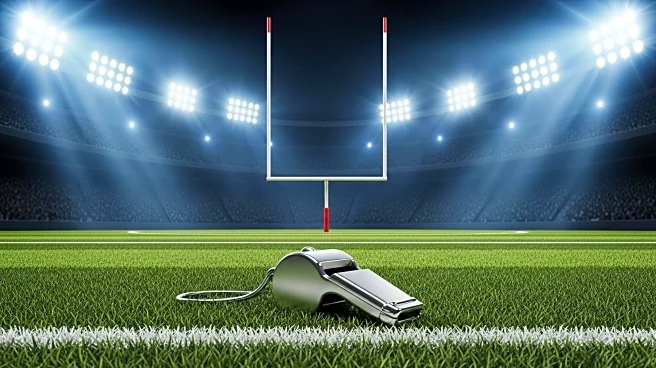What's Happening?
During the Auburn vs. Oklahoma football game, a controversial play led to a touchdown for Oklahoma, which was later deemed illegal by the SEC. Oklahoma's wide receiver Isaiah Sategna executed a trick play by pretending to substitute out, only to stop at the sideline and catch a pass for a touchdown. The SEC officiating crew failed to recognize this as a 'hideout tactic,' which should have resulted in a 15-yard unsportsmanlike conduct penalty against Oklahoma. The SEC has since released a statement acknowledging the error, clarifying that the play violated NCAA football rule 9-2, Article 2, which prohibits simulated substitutions to confuse opponents. Despite the error, the final score remained 27-14 in favor of Oklahoma, marking a significant win for head coach Brent Venables.
Why It's Important?
The SEC's admission of an officiating error highlights ongoing concerns about the accuracy and reliability of officiating in college football. Such errors can significantly impact game outcomes, affecting team standings and potentially influencing playoff selections. For Auburn, the incorrect call contributed to a loss in their opening SEC game, which could have implications for their season trajectory. The incident underscores the need for improved training and accountability measures for officiating crews to ensure fair play and maintain the integrity of the sport. Stakeholders, including teams, coaches, and fans, may push for reforms in officiating practices to prevent similar occurrences in the future.
What's Next?
The SEC has stated that appropriate accountability will be applied to the officiating crew involved, although no further details have been provided. This incident may prompt discussions within the SEC and NCAA about enhancing officiating protocols and possibly implementing additional review processes for controversial plays. Teams affected by such errors may seek more transparency and consistency in officiating standards. The broader college football community will likely monitor how the SEC addresses this issue and whether it leads to any changes in officiating practices or rules.











